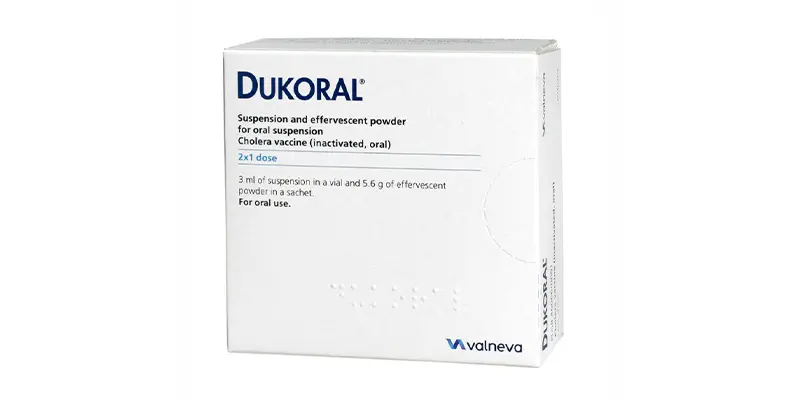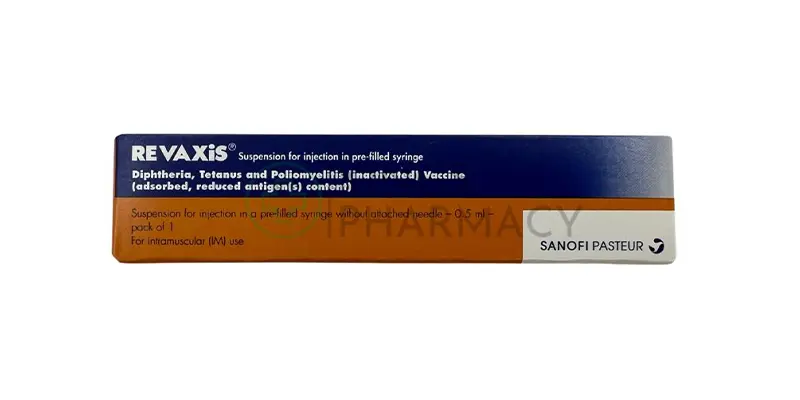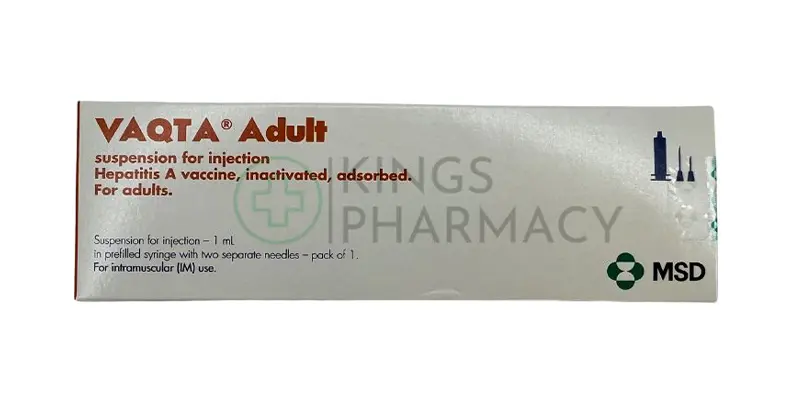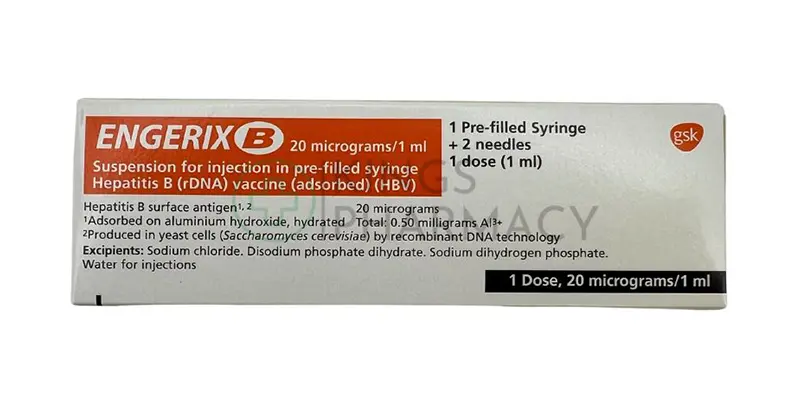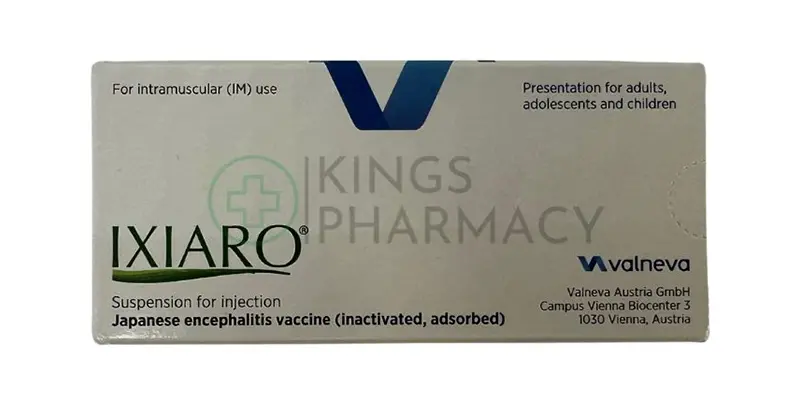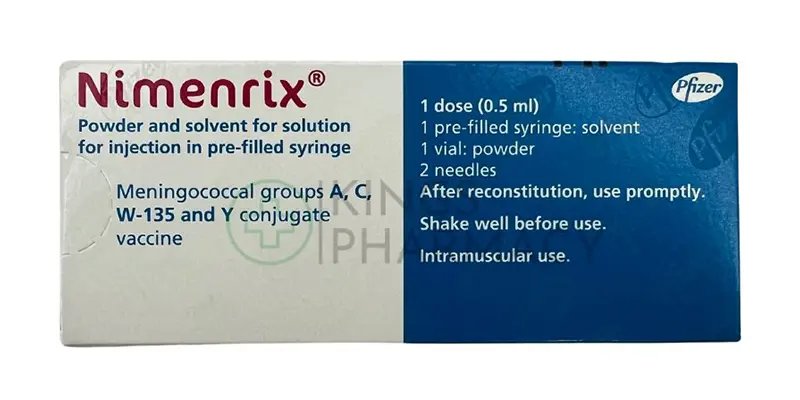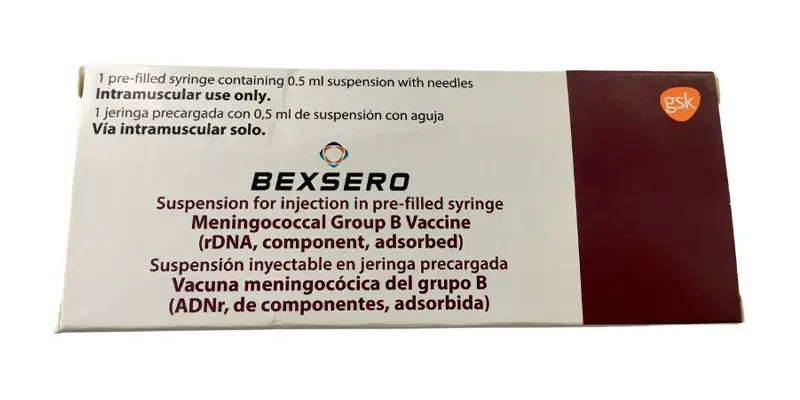Cholera Vaccination
The cholera vaccine is a critical tool in preventing the spread of cholera, a severe diarrheal disease caused by the bacterium Vibrio cholerae. Available in both oral and injectable forms, the vaccine provides immunity by stimulating the body's natural defenses against the bacteria. It is particularly important in areas with poor sanitation and limited access to clean water, where cholera outbreaks are more likely to occur. While not 100% effective, the vaccine significantly reduces the risk of infection and is a key component in global efforts to control and eventually eliminate cholera.
Select Quantity
What is Cholera?
Cholera is a bacterial infection caused by Vibrio cholerae that affects the intestines, leading to severe diarrhoea and dehydration. It is typically transmitted through the ingestion of food or water contaminated with the bacteria. Cholera is most common in areas with inadequate sanitation, poor hygiene, and limited access to clean drinking water. While many cases of cholera are mild or asymptomatic, in severe cases, it can cause rapid dehydration, which can be fatal without treatment.
Symptoms of Cholera
The symptoms of cholera can appear suddenly, usually 2 to 5 days after exposure. Common symptoms include:
- Profuse watery diarrhoea (often described as "rice water" stools)
- Vomiting
- Rapid dehydration, leading to symptoms such as dry mouth, excessive thirst, low blood pressure, and dizziness
- Muscle cramps In severe cases, if left untreated, cholera can cause shock, organ failure, and death due to dehydration.
Who Should Consider the Cholera Vaccine?
The cholera vaccine is recommended for:
- Travellers to areas where cholera is common, particularly in parts of Africa, Asia, the Caribbean, and Latin America
- People living or working in areas where sanitation is poor, or clean water is limited
- Humanitarian aid workers or those involved in disaster relief efforts in cholera-endemic regions
- People at high risk due to underlying health conditions that make them more vulnerable to dehydration or infection
- Individuals travelling for extended periods or engaging in activities that increase the risk of exposure, such as working with food or water supplies in affected regions
How Is the Cholera Vaccine Administered?
The cholera vaccine is available in oral form. It is typically given as a two-dose regimen, with the second dose administered between 1 to 6 weeks after the first dose. The vaccine is most effective when taken at least 1 to 2 weeks before travel to allow time for the body to build immunity. A single dose of the vaccine may also be recommended for some individuals, depending on their risk and the vaccine used.
Effectiveness of the Cholera Vaccine
The cholera vaccine is effective in reducing the risk of infection, particularly in areas with ongoing outbreaks. Protection begins a few days after the second dose and can last for up to 2 years, depending on the type of vaccine used. While the vaccine significantly reduces the risk of contracting cholera, no vaccine provides 100% protection, so it is important to continue practising good hygiene and safe food and water practices.
Side Effects of the Cholera Vaccine
The cholera vaccine is generally safe and well-tolerated. Common side effects include:
- Mild stomach upset or abdominal discomfort
- Nausea or diarrhoea
- Injection site pain (for the injectable version, if given)
These side effects are typically short-lived and resolve within a few days. Serious side effects are rare but can occur. If you experience signs of an allergic reaction, such as difficulty breathing, swelling of the face or throat, or a rash, seek immediate medical attention.
When Should You Get the Cholera Vaccine?
The cholera vaccine should be administered at least 1 to 2 weeks before travel to areas where cholera is prevalent. This allows time for the body to develop immunity. For those at high risk of exposure, such as aid workers or long-term travellers, the vaccine may need to be updated every 2 years. It is important to consult your healthcare provider for advice on the timing of the vaccine, especially if you're planning to travel to cholera-endemic regions.
Additional Preventive Measures
In addition to vaccination, it is crucial to follow precautions to reduce the risk of cholera:
- Drink only clean, bottled or treated water, and avoid ice made from unclean water
- Eat food that is thoroughly cooked and avoid raw or undercooked seafood, fruits, and vegetables
- Wash your hands regularly with soap and water, particularly before eating or preparing food and after using the toilet
- If clean water is not available, consider using water purification tablets or boiling water to kill harmful bacteria
What is cholera?
Cholera is an acute diarrheal disease caused by the bacterium Vibrio cholerae. It can lead to severe dehydration and, if untreated, can be life-threatening.
Who should receive the cholera vaccine?
The cholera vaccine is recommended for travelers to areas where cholera is prevalent, particularly in parts of Africa, South Asia, and the Caribbean. It is also advised for those involved in humanitarian work or outbreak response in these regions.
How effective is the cholera vaccine?
The cholera vaccine is effective in reducing the risk of contracting cholera. Protection from the vaccine typically lasts for up to 2 years. It does not provide 100% protection, so it’s important to also follow safe food and water practices.
What types of cholera vaccines are available?
There are oral cholera vaccines, such as Dukoral, which are commonly used. The vaccine is administered in two doses, with the second dose given 1-6 weeks after the first.
Are there any side effects of the cholera vaccine?
Common side effects include mild gastrointestinal symptoms like nausea and diarrhea. Serious side effects are rare but can include allergic reactions. Most side effects are mild and temporary.
How should I prepare for the cholera vaccination?
It is recommended to schedule the vaccination at least 2 weeks before travel to ensure full effectiveness. Consult your healthcare provider for personalized advice and to discuss any pre-existing health conditions or medications.
Is the cholera vaccine required for entry into any countries?
Some countries may require proof of cholera vaccination for entry, especially if there is an outbreak or if you are coming from an area with cholera. Check with the embassy or consulate of your destination country for specific entry requirements.
What should I do if I experience severe symptoms after vaccination?
If you experience severe symptoms or an allergic reaction after vaccination, seek medical attention immediately. Although serious side effects are rare, it's important to address any concerns with a healthcare professional.
Where can I find more information about the cholera vaccine?
For more detailed information, refer to the NHS website or the Green Book, which provides comprehensive guidance on immunizations and vaccinations.




